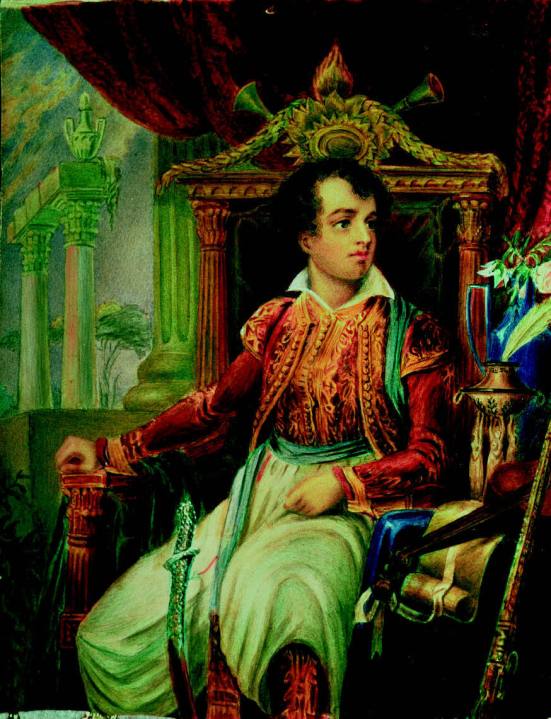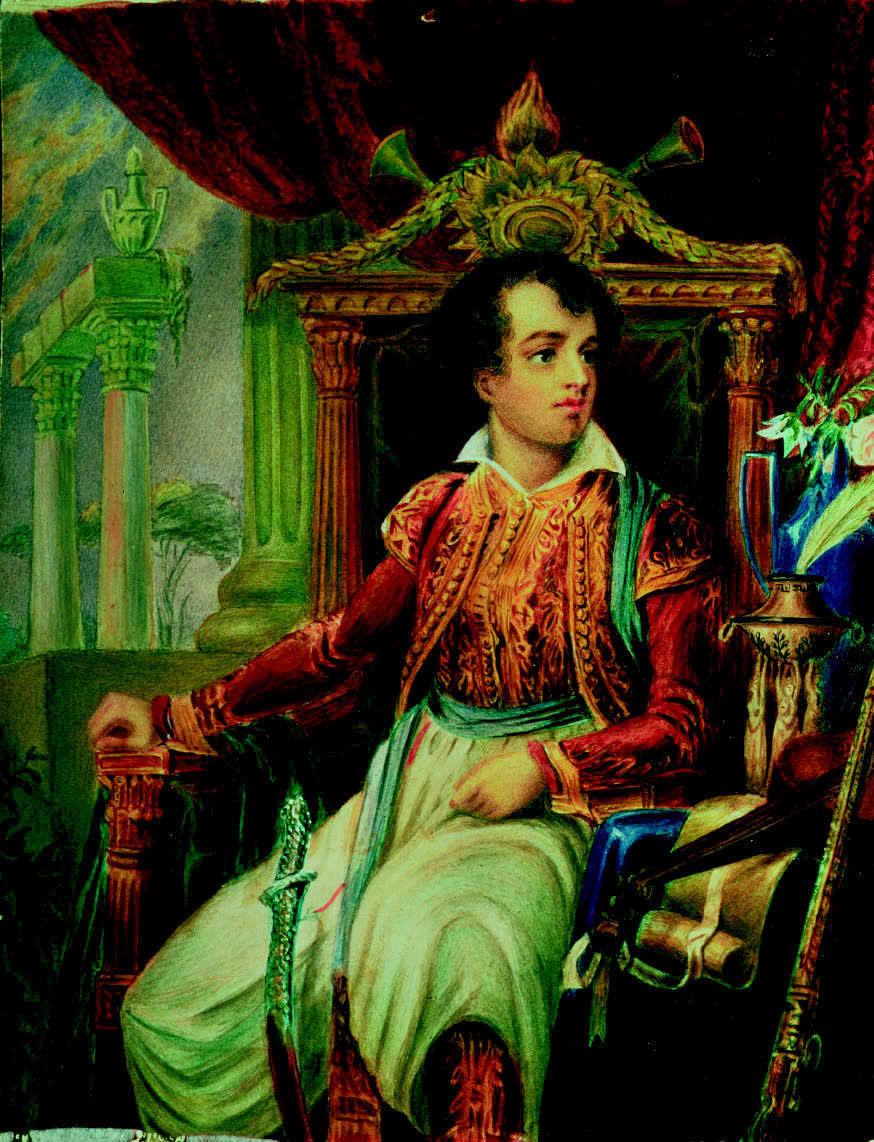If you thought that bust of Lenin you had on your desk as a teenager was the ultimate in radical chic, think on. Infatuated with the French Revolution, Lord Stanhope proclaimed his solidarity at a banquet at White’s Club. Announcing that he was thenceforth to be known as Citizen Stanhope, he ordered the coronets to be removed from the iron gates of his estate, Chevening.
Despite its title, David Pryce-Jones’s new book isn’t just, or even especially, about traitors. It’s a high-speed survey of prominent British citizens who have taken up foreign causes. Fellow-travellers, war-tourists, flauters of the Foreign Enlistment Acts and romantic propagandists take their places here alongside your run-of-the-mill fifth-columnists, and your basic berks like Citizen Stanhope.
Pryce-Jones diagnoses freelance meddling in foreign conflicts — ordinarily the prerogative of the state — as something of a British disease, proceeding from a patronising sense of superiority and the boring blessings of long-term domestic stability. In his introduction, he makes clear where he stands:
Only the greatest novelists could do justice to the complex bundle of Utopian or millenarian fantasies, the twinned hatred and self-hatred, the narcissism, guilt, sanctimoniousness, hunger for power, fanaticism and nihilism that are on display in Treason of the Heart.
He finds some humdinging examples. A wonderful single paragraph eviscerates, sentence by sentence, how exactly wrong Hazlitt was about Napoleon. We read of the scarlet-and-gold comic-opera uniform Lord Byron had run up for his expedition to Greece, and meet the preening Ottoman partisan David Urquhart, who gave up using a knife and fork, took to walking around barefoot and insisted on being called ‘Daoud Bey’.
Pryce-Jones’s approach, as a historian, is slightly eccentric, though: not so much to understand, explain or analyse the differing foreign nationalisms (or, in the case of Thomas Paine at one end and Kim Philby at the other, internationalisms) embraced by his protagonists, so much as to tell them off for embracing them.
A vocabulary of insult and belittlement is marshalled against his subjects. After baldly asserting that Thomas Paine’s pursuit of liberty ‘was not genuine’, and endorsing William Cobbett’s pop-psychological one-liner that Paine’s entire political history can be explained by his being all bitter about getting fired from the Customs service, he tells us: ‘Personal failings, boasting, drunkenness, an unconsummated marriage — all suggest someone who found it hard to get on with other people.’
If that appears insufficiently reductive, be apprised that ‘masochism seems to explain every aspect of T. E. Lawrence’s life’, and that Lord Byron’s philhellenism was ‘the function of a character so spoiled that he believed he could do as he pleased with no need to explain or apologise for anything to anyone’. An English enthusiast for Garibaldi is ‘a fifth-rate poet if ever there was one’. Beatrice and Sidney Webb are ‘prize boobies’. Hazlitt is ‘this most overrated and equivocal writer’. And on it goes.
‘Calm down, dear!’, one wants to say. You’re wasting your zingers on enemies too dead to care, and it makes you sound demented. The school of liberal history that wants to dissolve individual agency in an acid-bath of overdetermination and moral relativism is no doubt something against which Pryce- Jones intends to kick, and well he might; but it’s hard to see where a perpetual tone of ad hominem indignation gets us as an alternative. Pointing out what an egotistical hypocrite Tom Paine was, or declaring that T. E. Lawrence ‘should have been court-martialled’, seem to me simply the paleo-con equivalent of a liberal historian congratulating himself on disapproving of slavery.
What lends Pryce-Jones’s writing this peculiar lack of coolness, this strange and angry polemical torque, is his sense that the follies of these long-dead fellow- travellers have insidiously survived them in the form of such contemporary iniquities as the European Union and the decimalisation of our currency.
The romantic Arabism of 60-odd years ago, for instance, is blamed for the hard time Israel sometimes gets. It is no more than an attempt to ‘curry Arab approval’ in ‘British ruling circles’, those ‘circles’ being the traditional roll-call of infamy: ‘the Foreign Office and Chatham House, the media, with the BBC and the Guardian newspaper in the lead, academia, trade unions, members of both houses of Parliament, pressure groups like the Palestine Solidarity Committee. . .’.
Likewise, ‘those who marched in European capitals to demonstrate against war with Saddam Hussein were Gertrude Bell’s heirs, even if they had no idea who she might have been.’ Leaving aside the sneer implied in the last phrase, it’s an odd claim. I suppose he means to argue that Bell helped install an illegitimate Sunni tyrant in a country with a Shia majority, and that the stop-the-war mob effectively campaigned to keep one in power. But if Bell is castigated for a naive and sentimental approach to nation-building, isn’t a repetition of her folly also what anti-war marchers sought to prevent?
On-the-one-hand-and-on-the-other reasoning isn’t the author’s strong point though, and that’s my beef with his book. It’s not that I happen to differ from him ideologically; it’s that Treason of the Heart asserts more than it argues, and the intensity of its scorn makes it a blunt instrument. Distinctions are flattened rather than elucidated, and the specifics of politics give way to the windy generalities of group psychology.
It’s hard to see how these episodes — which span three centuries or so, and whose protagonists vary from establishment Arabists to pseudo-Jacobin popinjays, partisans for the Greeks, the Turks and the Armenians, revolutionaries and fascist fellow-travellers — tell us anything very interesting in aggregate.
For the book to hang together as more than a collection of anecdotes it needs to find a valid point of comparison between an 18th-century radical like Tom Paine, besotted with revolutionary France and actuated by hatred of George III’s Britain, and a 20th-century Zionist like Orde Wingate, whose split loyalty existed in a wholly different religious and political context.
It doesn’t find a point of comparison worth the recording. Inasmuch as an overall analysis emerges, it’s that individual Brits who have taken much of an interest in the quarrels of foreigners over the last few hundred years have been self-indulgent ninnies, and that no good has come of their activities. I don’t think that will quite do.








Comments